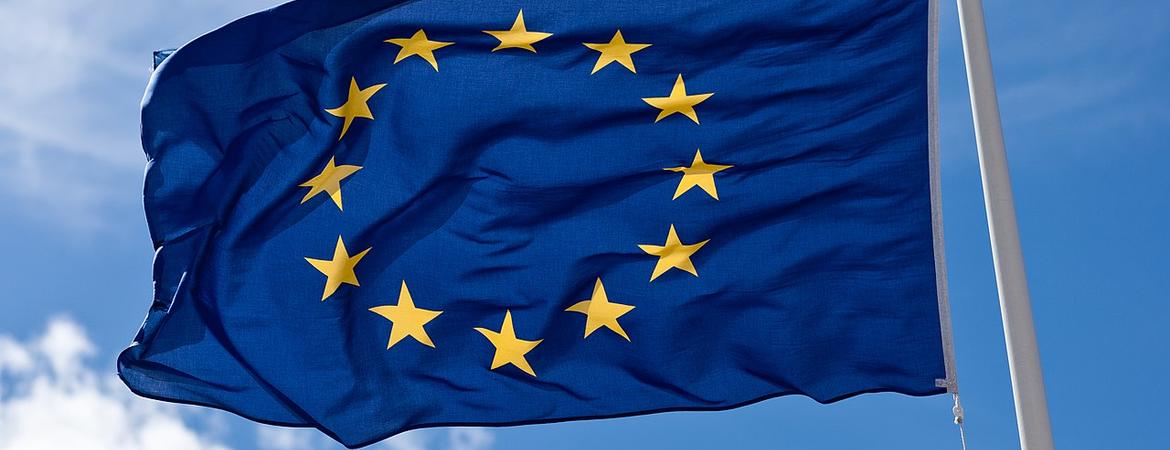
Jana Grittersova is an associate professor of political science and a cooperating faculty member in the Department of Economics at the University of California, Riverside, where she studies the political economy of international finance.
As she works on a book about central banks in the era of populist politics, Grittersova has paid particular attention to the policy responses of governments and central banks to the coronavirus pandemic, a crisis she describes as a severe economic shock.
“Central banks often serve as scapegoats for populist governments,” she said. “But they’ve emerged as the best allies of governments during this crisis.”
Before coming to UCR, Grittersova worked as a central banker at the National Bank of Slovakia and as an economist at the European Commission, the executive body of the European Union, or EU. Here, she discusses how the coronavirus is impacting Europe, the economic measures being taken to counteract the damage wrought by the crisis, and why Americans should pay attention to what’s happening abroad.
Can you give us a bird’s-eye view of how the coronavirus crisis is affecting Europe? Europe remains the epicenter of the coronavirus pandemic, with almost half of all coronavirus cases and two-thirds of all deaths. Some countries in Europe, like Spain and Italy, have been hit particularly hard. What’s important to underline is that prolonged containment has resulted in a huge loss in growth, and increased unemployment, in Europe. There are some preliminary statistics showing that between 15% and 25% of Europe’s total labor force may be directly affected by the crisis. According to the latest forecasts from the International Monetary Fund, the eurozone economy is expected to decline by 7.5% this year. Just to compare this collapse in income in Europe with the prior Great Recession in 2009, back then, the European economy experienced a 4.5% decline.
As the central bank of the 19 EU countries that have adopted the euro, the European Central Bank, or ECB, is akin to the U.S. Federal Reserve, which recently announced $2.3 trillion in economic assistance programs for American businesses and local governments. How is the ECB responding to the coronavirus? I was impressed by how global central banks took sweeping actions to fight the coronavirus — they were fast and quite unprecedented. Originally, the ECB had a slow start in responding, marked by a verbal faux pas of Christine Lagarde, the ECB’s president, who said that it was not the central bank’s job to “close spreads” in sovereign bond markets. A spread is the difference in yields between two bonds from different eurozone governments. This led to the worst-ever one-day decline in Italian bond prices.
But since then, the ECB has launched a lot of measures to help stabilize the European economy and committed to do “whatever it takes” to sustain the eurozone. First, it launched a new Pandemic Emergency Purchase Program, offering up to 750 billion euros until the end of 2020. This means the ECB will buy national debts, including debt from Greece, which previously was excluded from the buying program because of its low credit rating. In addition, the ECB added an extra 120 billion euros to its existing asset buying program, which is called the Public Sector Purchase Program.
So, the ECB buys bonds of governments but also bonds issued by firms. By buying government and corporate bonds, the ECB lowers interest rates, helping governments and firms to borrow cheaper and invest, which will create jobs and stimulate economic growth. The ECB has also provided cheap loans to commercial banks because it wants those banks to lend to small and medium firms. Through all these programs, the ECB will buy over 1 trillion euros’ worth of bonds this year and provide loans at very low interest rates.
What are some challenges for the EU when it comes to coronavirus response? Well, the EU has struggled to produce a coordinated response to the crisis, which represents the latest stress test to the solidarity of the bloc. The future of the European project may depend on how EU leaders handle this crisis. It is politically difficult to implement timely and comprehensive macroeconomic stabilization in crises in the eurozone because its institutional framework is incomplete. What I mean by that is that the euro area lacks a centralized fiscal authority, a real European treasury. There is the ECB, a common monetary authority, but there is no common fiscal authority, or treasury. Also, the existing rescue tools, such as the European Stability Mechanism, a bailout fund established in 2012, are very restricted and conditional on adjustment measures to offer the adequate support to crisis-stricken countries.
What about individual EU countries? How have they responded to this crisis? COVID-19 is a “symmetric exogenous shock,” in economic parlance, for which no individual European country bears responsibility. At the national level, European countries differ in terms of their financial wealth and in terms of the capacities of their national health care systems. As a result, their policy responses to the coronavirus epidemic have been quite unequal. For instance, Italy is able to provide a fiscal stimulus package that amounts only to 4% of the size of the German package.
The different EU member states have struggled to present a unified front. They were fighting over money, medical equipment, and drugs, as well as over border restrictions. But finally, on April 9, European finance ministers agreed to release a pretty impressive coronavirus rescue plan — 540 billion euros — to support member states, companies, and workers. Out of those 540 billion euros, 100 billion are part of a loan plan for unemployment benefits and job support, administered by the European Commission. Another 200 billion are for loans to small businesses from the European Investment Bank, the lending arm of the EU. And another 240 billion are for loans to euro-area governments from the European Stability Mechanism. Together, if all of these packages are approved, they’ll bring the EU’s total fiscal response to 3.2 trillion euros, which is larger than the U.S. support package.
However, the EU finance ministers were unable to reach an agreement on issuing joint bonds, dubbed “corona bonds,” to raise long-term money for all member countries due to a strong opposition from the “frugal four” — Germany, the Netherlands, Austria, and Finland — worried about financing the massive debt of southern European countries. Therefore, the EU rescue package is composed mostly of additional loans instead of sharing of the economic burden of the pandemic across all members, which would be a real expression of EU solidarity.
Has there been a coordinated public health response to the coronavirus crisis on behalf of the EU? The European Commission, which is the executive body of the EU, has limited power over health matters. Public health is the responsibility of individual member states, while the role of the European Commission is just to “encourage cooperation” on health issues — it cannot manage health policy. On the other hand, the EU treaty has a so-called “solidarity clause,” which can be invoked if a member country is the victim, for example, of a natural disaster. It allows that country to ask for help. The coronavirus is the kind of superior force that countries could use to invoke the solidarity clause.
What lessons do you think the U.S. and other countries could learn from what Europe is experiencing? I think one lesson from this crisis is that the economic impact of the coronavirus is global because economies are deeply interconnected. Madeleine Albright said the coronavirus should be a wakeup call for world leaders to act together. The pandemic does not respect boundaries, and it can’t be defeated by one single country. And so, what is needed is rapid and effective international cooperation. It’s very essential if the world economy is to emerge safely from this pandemic.
Major central banks have set an outstanding example of cooperation to limit the economic damage of the coronavirus crisis and prevent the global financial system from collapsing. They took a coordinated action to support lending in dollars — the dominant international currency — in global markets via the Federal Reserve currency swap lines, which allow foreign central banks to borrow unlimited quantities of dollars from the Fed in exchange for credits in their own currency.
Why should people in the U.S. be paying attention to what’s happening in Europe? One thing I think people in the U.S. and in democracies around the world should pay attention to is the measures governments are taking to tackle the coronavirus crisis, which may represent a threat to core democratic principles. Many commentators have warned that Europe’s populist right and autocratic parties could be the winners if the EU governments mishandle the policy response or EU leaders fail to act in solidarity. In countries like Hungary, for example, we’ve seen Prime Minister Viktor Orban using the crisis to pass sweeping measures to establish what some commentators called “the EU’s first coronavirus dictatorship.”
But again, I’m quite optimistic because experience so far shows that dictators and populist leaders are not better at handling the pandemic. In fact, the coronavirus crisis could spell the beginning of the end of political populism, as it may start to restore some of the public’s lost trust in the value of professional expertise and experts such as medical professionals and central bankers. This crisis may represent an opportunity; it may lead to new ways of economic thinking and fundamentally different policies. As Winston Churchill said, “Never let a good crisis go to waste.”




